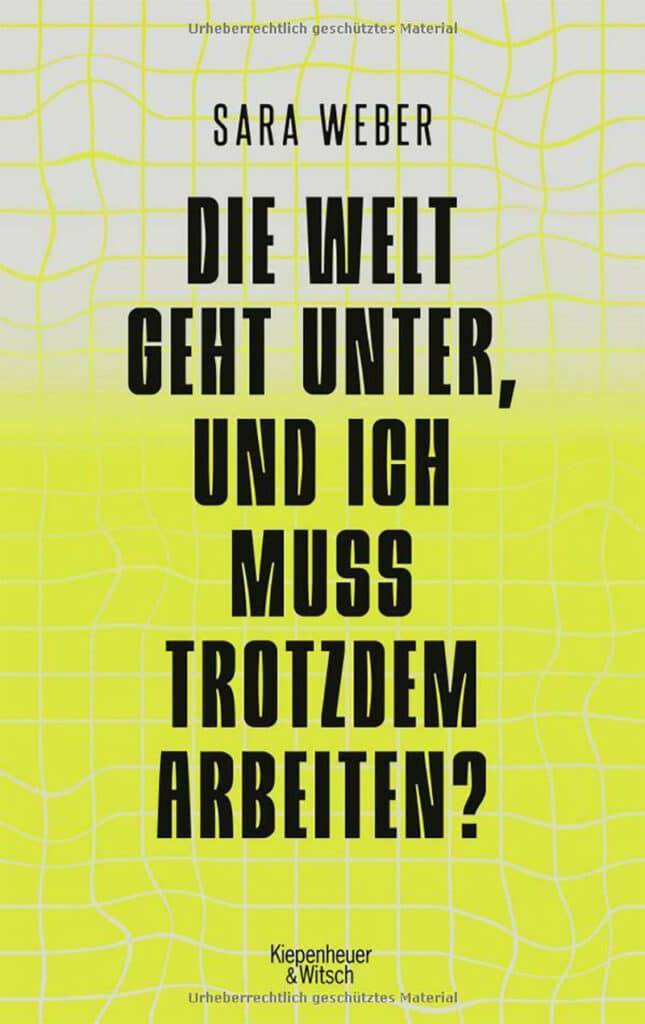The coronavirus pandemic has accelerated a development that has been going on for a long time. “In the past, the promise was clear: those who work hard will get better. This promise does not work anymore,” writes the award winner in her book entitled The World Goes Down, and I still have to work?

Source: Mica Zeits/Sara Weber archive

The World of Work changes, but Work remains
Young people, despite hard work, would not be able to afford to buy a property; if they did not know whether they were receiving a pension to live on, they might not have any livelihoods in the face of the climate crisis. So why do you work until you fall? The world is changing, and the companies are changing, but the way we work is still the same. That can’t work. “But we are too exhausted to change anything about it,” Weber writes.
Weber’s book is divided into two parts: on the one hand, it provides an overview of the situation of today’s workers. On the other hand, it analyses the problems of the world of work and their possible solutions in the back, in the larger part. The status quo is quickly summarised: the Germans are exhausted, have no desire to work anymore, and are dropping out of their jobs, which adds to the shortage of skilled personnel. The dissatisfaction with the working conditions spreads across all layers and disciplines, whether scientists, bicycle couriers, doctors, or warehouse workers. Often, the reasons are the same.
Elevate Your Wealth Game: Empowering UHNWIs for Simplified Asset Management. Altoo Platform Preview
Always accessible
The 40-hour week for a full-time job comes from a time “when men usually went to work and earned money while women kept their backs at home,” the book notes. Today, 75 percent of mothers work, although most of them work part-time. This means that often no one has time all day “to take care of childcare, household chores, cooking, shopping, and all the other care work”. And the 40-hour week dates back to a time when technology was far less advanced than it is today. Consequently, Weber asks the question, “So if more people work and technology has improved, why don’t we work less?“
The journalist and former editor-in-chief of the LinkedIn career network in Germany also describes her own experiences. Above all, she also touches on the newly widespread phenomenon of the home office. In order not to have the feeling of having to be constantly accessible and having to keep the computer running permanently side by side, however, this form of work must be properly learned. How do teams communicate properly despite spatial separation? Which format makes the most sense? How do bosses and subordinates build trust, like a team feeling? “We define ourselves very strongly about our work. We are all so much more than our profession,” says the author.
One of the messages is that our working world has become very unfair. Some work hard, have poor working conditions, and earn poorly. Others sit in the home office and earn very well. We need to create more alignment, justice, and humanity. We need to make sure that the people who work are doing well. We need more flexibility in terms of time. And we need gender equality. The book is a plea to workers to courageously “start a movement for new, better, fairer work for all”. And to politicians, executives, and employers, just as courageously to try out new ways and make this possible.









